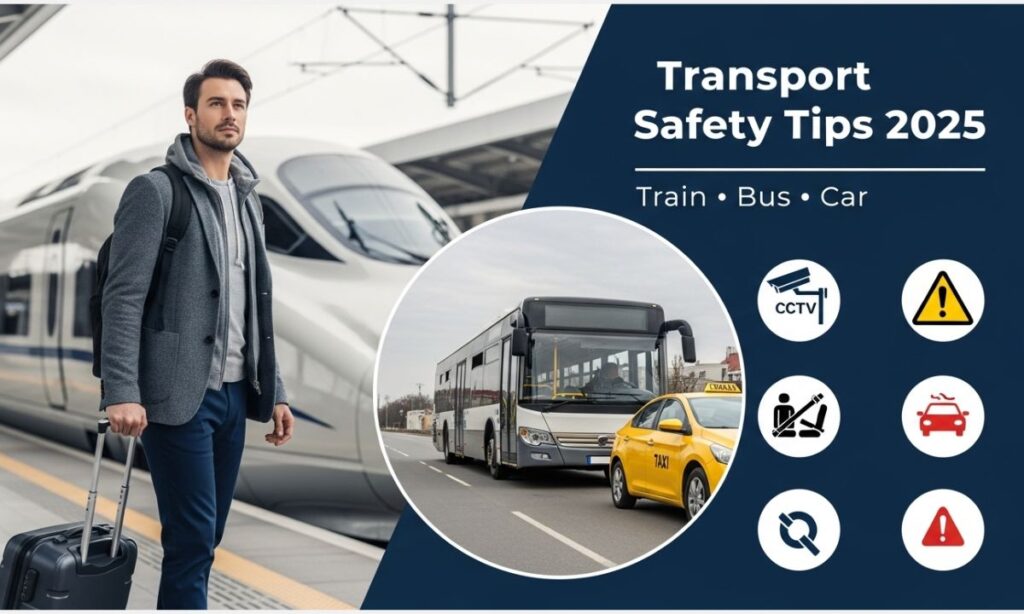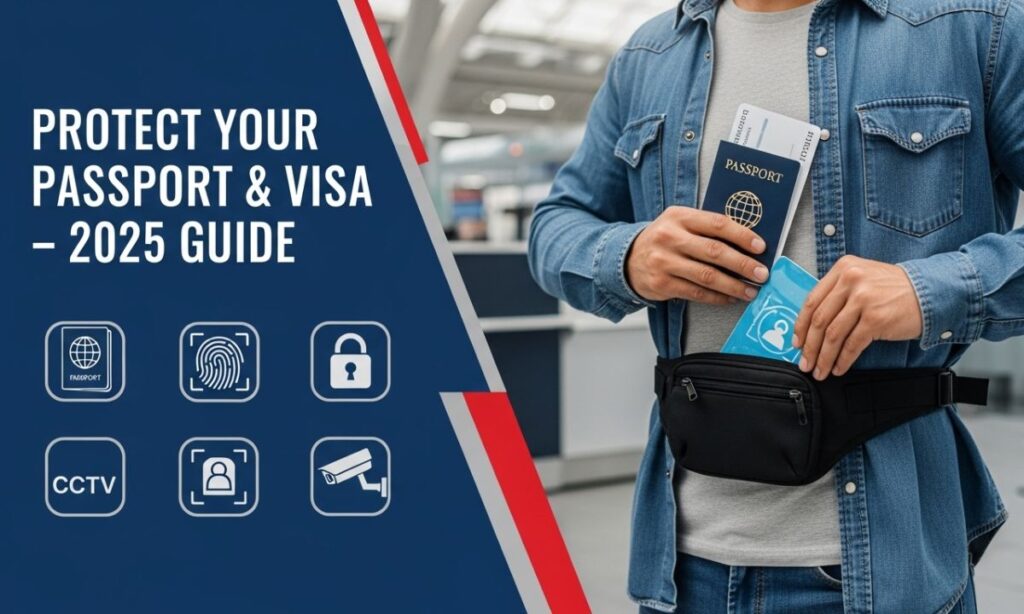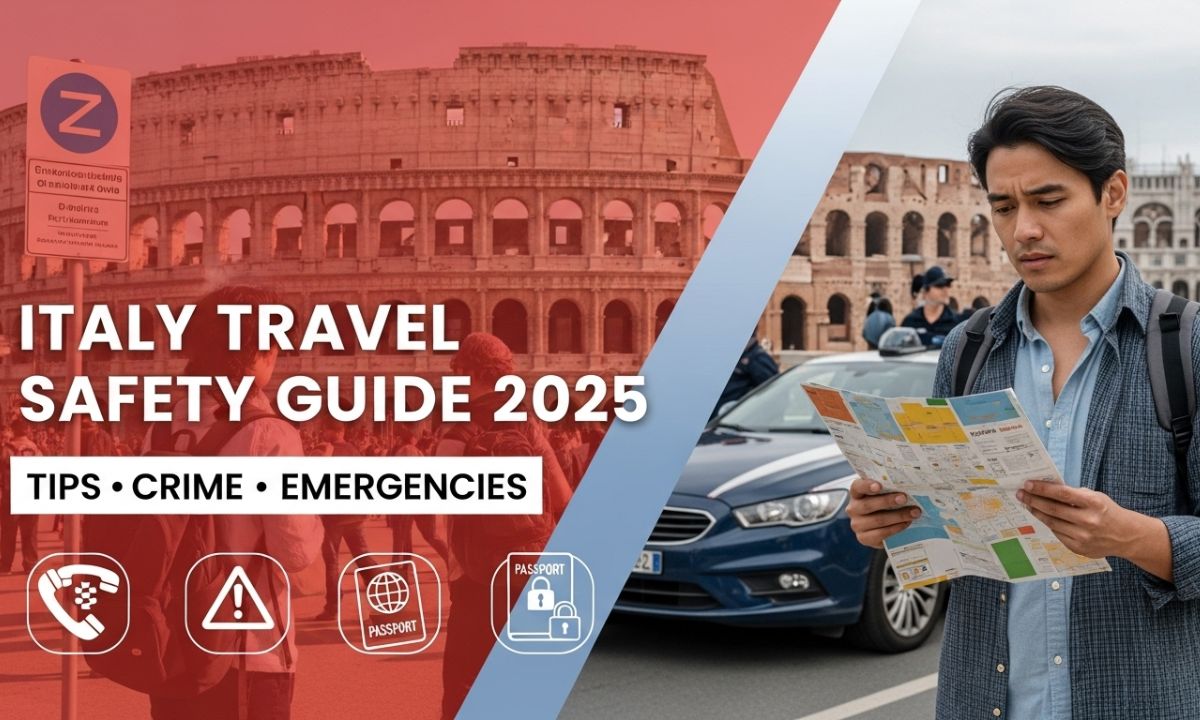Planning a trip to Italy? You’re probably wondering is Italy safe for tourists – and honestly, it’s one of Europe’s safest countries to visit.
I’ve traveled through Italy multiple times, and while serious crime is rare, pickpockets love targeting tourists. Staying safe in Italy comes down to common sense and a bit of street smarts.
The Italy crime rate 2025 shows it’s actually safer than most places you’d visit. Just don’t be that tourist flashing cash everywhere.
1. Pickpocket Prevention & Tourist Scam Awareness in Italian Cities
Rome’s a pickpocket paradise – especially around the Colosseum and Vatican. These guys work in groups and they’re good at what they do.
Milan pickpocket hotspots hit you hard at Central Station and near the Duomo. They love tourists buried in their phones or struggling with maps.
Florence tourist areas have this annoying bracelet scam. Some guy ties a “friendship bracelet” on your wrist then demands 10 euros. Just walk away.
Venice water taxi scams are legendary. Fake water taxis charge crazy prices. Always check the license and settle on price before getting in.
Money belts saved my butt countless times. Keep your real wallet in front pockets, not back ones where pickpockets feast.
Rome safety at night depends on where you hang out. Stick to busy streets with restaurants and you’ll be fine.
2. Emergency Contacts & Medical Safety for Italy Travelers 2025
Remember 112 – that’s your lifeline for everything in Italy. Police, ambulance, fire – they sort it out from there.
Tourist police Italy are actually pretty helpful. They deal with tourists all day and usually speak decent English.
Italian hospital locations are everywhere and the healthcare’s solid. Way better than what you’d expect if you’re American.
Save those Italian emergency numbers the second you land. Don’t be that person scrambling for help when things go wrong.
Travel insurance Italy isn’t optional – it’s survival. Medical bills without insurance will ruin your vacation budget and then some.
Pharmacies with green crosses are lifesavers for basic stuff. The pharmacists know their medications and can help with simple problems.
READ THIS BLOG : 25 Trendy Streetwear Outfit Ideas for Women in 2025 – Complete Style Guide
3. Transportation Security: Train, Bus & Car Travel Safety Tips
Italian trains are pretty safe, but Termini Station in Rome is pickpocket central. Keep your bags where you can see them.
Rome train station safety means staying alert during rush hour chaos. Those platforms get packed and thieves love crowds.
Only use licensed taxis with meters. Those unmarked cars at airports will rob you blind legally.

Renting a car? Good luck with Italian drivers. They’re aggressive but skilled. Get full insurance – trust me on this.
Public buses work fine during the day. Just hold your stuff tight and know where the exits are.
Safe transportation options Italy include official taxi apps and tour companies with actual reviews, not fake ones.
4. Accommodation Safety: Hotel, Airbnb & Hostel Security Guide
Hotels with someone at the front desk 24/7 beat empty lobbies every time. Ask about safes for your passport and cash.
Airbnb homework matters. Read recent reviews carefully – people mention sketchy neighborhoods and security issues.
Hostels range from great to scary. Look for places with individual lockers and keycard systems, not just regular keys.
Lock everything when you leave. Sounds obvious, but you’d be surprised how many people skip this basic step.
Ground floor rooms get broken into more often. Ask for higher floors – better views and better security.
Know where the emergency exits are. Takes two minutes and could save your life if something bad happens.
5. Food & Water Safety Standards in Italy for International Visitors
Italian tap water tastes great and won’t make you sick. The restaurants follow strict rules, so food poisoning is rare.
Street food from busy vendors is usually fine. High turnover means fresher ingredients. Skip seafood when it’s hot outside.
Market produce is safe after you wash it. Italian supermarkets have quality standards that put many countries to shame.
Getting sick from food in Italy almost never happens to tourists. You’re more likely to gain weight than lose it.
Restaurants handle dietary restrictions pretty well in tourist areas. They’ll tell you about allergens if you ask nicely.
Service charges are often included in bills. Extra tips are nice but not expected like in America.
6. Natural Disaster Preparedness: Earthquakes, Floods & Weather Alerts
Earthquakes happen sometimes in central and southern Italy. Buildings in tourist areas meet safety codes, so don’t stress too much.
Venice floods every winter – it’s called acqua alta. Check weather reports before visiting between October and March.
Northern Italy gets real winter weather. If you’re driving in the mountains, pack chains and know how to use them.
Summer heat waves can be brutal in cities. Stay hydrated and find air conditioning when temperatures spike.
Weather apps send emergency alerts to your phone. Download them and turn on notifications – they actually work.
Hotels post emergency procedures somewhere obvious. Actually read them instead of ignoring them like everyone else.
7. Night Safety & Entertainment District Precautions in Major Cities
Florence and Venice feel safe at night with decent lighting and foot traffic. They’re pretty relaxed after dark.
Party districts have cops around but also attract troublemakers. Stick with friends and don’t drink yourself stupid.
Solo female travel Italy works fine with basic precautions. Tell someone your plans and check in regularly.
Licensed bars and clubs with security feel safer than random holes in the wall. Cover charges usually mean better security.
Rome’s Trastevere and Milan’s Navigli areas are popular nightlife spots. Stick to main streets when walking around.
Trust your gut feelings. If something seems off, leave immediately. Better safe than sorry every single time.
8. Document Security: Passport, Visa & Identity Protection Methods
Keep your passport accessible but secure. Italian cops do random checks and they’re not patient about waiting.
Theft reporting Italy starts with calling police immediately. Get that report filed with everything you remember.
Embassy contact happens fast if your passport disappears. The replacement process takes days, not hours.

Cloud storage for document copies saves massive headaches. Email yourself copies before you even leave home.
Passport replacement needs police reports, photos, and embassy visits. Plan for several days without travel documents.
Write down emergency contacts separately from your phone. When your phone dies, paper still works perfectly.
9. Cultural Etiquette & Local Law Compliance for Safe Travel
Churches want shoulders and knees covered. Tank tops and shorts get you turned away at the door.
Photography rules exist in museums and government buildings. Follow the signs or face fines and confiscated cameras.
Public drunkenness and property damage carry serious penalties. Italian cops don’t mess around with troublemakers.
Religious sites deserve respect. Loud tourists and inappropriate behavior draw unwanted attention from everyone.
Tipping works differently than America. Service charges are often included, so extra tips are appreciated but optional.
Northern Italy tends to be more formal than the south. Adjust your behavior to match local expectations.
READ THIS BLOG : 25 Must-Have European Summer Vacation Outfits 2025 | Complete Travel Style Guide
10. Digital Safety: WiFi Security, Phone Scams & Online Fraud Prevention
Public WiFi is convenient but risky for banking and sensitive accounts. Save that stuff for secure connections.
Phone scams include fake police calls and bogus booking confirmations. Always verify contacts through independent sources.
Credit card skimmers hit tourist areas hard. Use chip cards and check your accounts regularly for weird charges.
Social media posts during travel tell criminals when your home is empty. Share photos after you return.
VPN services add security layers on public networks. Install them before traveling for better protection.
Banks block suspicious transactions automatically. Tell them your travel dates to avoid having cards frozen.
Frequently Question Answer
Is Italy safe for solo travelers?
Absolutely. Italy welcomes solo travelers with open arms. Use normal street smarts and stick to tourist areas.
What are the most dangerous areas in Italy to avoid?
Some Naples neighborhoods and Rome’s outer suburbs at night. Tourist zones stay relatively safe throughout.
Do I need travel insurance for Italy?
Yes, medical emergencies cost thousands without coverage. Don’t risk bankruptcy over a broken leg.
How do I contact police in Italy as a tourist?
Call 112 for emergencies or find tourist police stations. Many officers speak English in tourist areas.
What should I do if my passport is stolen in Italy?
Police report first, embassy contact second. Start replacement paperwork immediately with all available documentation.
Conclusion
Italy ranks among the safest European destinations for travelers. Smart preparation and basic awareness prevent most problems.
The country’s tourist infrastructure and emergency services create welcoming environments for international visitors. Stay alert and enjoy everything Italy offers.
These practical tips ensure memorable Italian adventures without unnecessary risks or complications during your visit.

